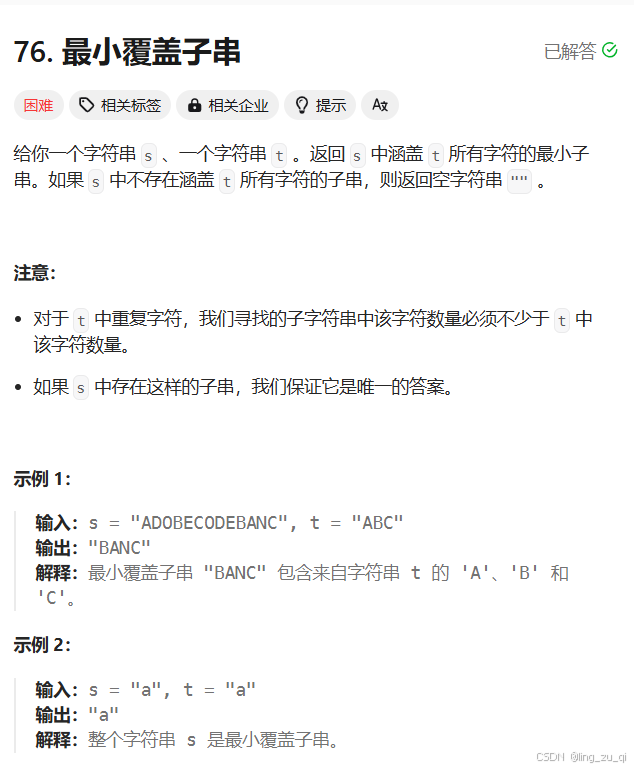类的多态
多态概念入门
#include <iostream>
using namespace std;
/*
多态的前提: 拥有继承关系的类中有相同的函数(返回类型、函数名、形参列表)
多态解决的问题:
1、派生类的对象被赋值给基类对象时
2、派生类的对象初始化基类的引用时
3、基类的指针指向派生类时
函数调用的问题
总结:
没有多态时看类型。
有多态时看内存。
*/
class A
{
public:
A() {cout << "A" << endl;}
A(const A& a) {cout << "A(const A& a)" << endl;}
void fun() {cout << "A::fun()" << endl;}
};
class B : public A
{
public:
B() {cout << "B" << endl;}
B(const B& b) {cout << "B(const B& b)" << endl;}
void fun() {cout << "B::fun()" << endl;}
};
int main(int argc, char *argv[])
{
B b;
// 1、派生类的对象可以被赋值给基类对象
A a = b;
a.fun();
// 2、派生类的对象可以初始化基类的引用
A& a1 = b;
a1.fun();
// 3、指向基类的指针也可以指向派生类
A* a2 = new B;
a2->fun(); // 调用的是A类函数,但本质确实B的空间
return 0;
}多态性
多态性:例如函数重载,同一个函数名会产生不同的结果,而虚函数是实现多态性另一个重要途径
#include <iostream>
using namespace std;
class A
{
private:
int a;
public:
virtual void f(); // 这是虚函数的一个地址,而不是实际的函数,地址所指向的的才是对应的函数
};
int main()
{
cout << sizeof(A) << endl; // 4 + 8 = 12 内存对齐原则 最终打印 16
return 0;
}普通虚函数
#include <iostream>
using namespace std;
class Manmal
{
public:
// 注意点一:
// virtual 的三种情况(为了书写规范,基类和派生类必须都写)
// 1、基类有 派生类没有 可以构成虚函数
// 2、基类有 派生类有 可以构成虚函数
// 3、基类没有 派生类有 不可以构成虚函数
virtual void sound() { cout << "发出叫声" << endl; }
};
/*
注意点二:
虚函数定义时不需要再次书写 virtual 关键字
void Manmal::sound()
{ cout << "发出叫声" << endl; }
*/
class Cat : public Manmal
{
public:
// 注意点三:
// 此时,派生类中拥有和基类相同的函数,这一行为叫做函数的复写(又称覆盖),不是重载
// 函数复写的最大特点:基类的指针或引用可以忽略基类已存在的版本,直接调用派生类的版本
virtual void sound() { cout << "喵喵喵" << endl; }
};
class Dog : public Manmal
{
public:
// 注意点四:
// 普通虚函数派生类可以不进行复写,当注释下方语句时,派生类进行调用则会打印基类虚函数叫声
// 理解:基类的虚函数是所有派生类的共同特点,当派生类不具备自己的特点时,则会显示出共同特点
virtual void sound() { cout << "汪汪汪" << endl; }
};
// 可以处理一切哺乳动物发出声音这种行为
void feed(Manmal &m)
{
m.sound();
}
------------------------------------------------------------------------------------------------------------------
/*
void feed(Cat &cat)
{
cat.sound();
}
void feed(Dog &dog)
{
dog.sound();
}
*/
------------------------------------------------------------------------------------------------------------------
int main()
{
Cat *cat = new Cat;
Dog *dog = new Dog;
feed(*cat);
feed(*dog);
/*
// 上述代码改写 并删除 feed 函数
Manmal *cat = new Cat;
Manmal *dog = new Dog;
cat->sound();
dog->sound();
*/
delete cat;
delete dog;
return 0;
}纯虚函数
概念:相较于普通虚函数(基类中的虚函数必须实现),纯虚函数可以不用实现基类中的虚函数(也可以实现),这个基类称之为抽象基类,但是同时要求派生类必须实现虚函数代码,否则不能定义对象仍旧为抽象基类。
#include <iostream>
using namespace std;
class A // 抽象基类:专门用于派生子类,自己不能定义对象
{
public:
// 本质:只有实现这个函数才能定义对象,这是所有派生类产生的必须条件。如:战斗机、明航客机、直升机等都必须能飞
virtual void f() = 0; // 纯虚函数定义形式
};
int main()
{
return 0;
}虚函数与构造函数
构造函数不能是虚函数
虚函数意味着要被派生类的各类方法进行复写,而派生类的构造并不能通过基类。
虚函数与析构函数
结论:
若一个类不会派生新的类,则析构函数只需普通函数即可;
若一个类会派生出新的类,则析构函数必须定义为虚函数;
#include <iostream>
using namespace std;
class Base
{
public:
virtual ~Base() { cout << "~Base()" << endl; }
};
class Drived1 : public Base
{
public:
virtual ~Drived1() { cout << "~Drived1()" << endl; }
};
class Drived2 : public Base
{
public:
virtual ~Drived2() { cout << "~Drived2()" << endl; }
};
int main()
{
// 若不将析构函数定义为虚函数,那么派生类析构时就无法调用派生类的析构函数,不能产生穿透
// 析构函数相较于普通函数,虚函数复写时名字可以不同,因为一个类只有一个析构函数
Base *d1 = new Drived1;
Base *d2 = new Drived2;
delete d1;
delete d2;
return 0;
}运算符重载与友元
运算符函数
在 c++ 中,操作数包含类对象时,运算符操作就是一个函数。除了赋值运算符默认之外,其余都需要进行重载才能使用。
class A
{
public:
// 重载了 + 运算符
const A & operator+(const A &b); // const 是为了保证和普通运算符运算方式一致,如:(a+b)=c 不应该被满足
};
int main()
{
A a, b;
a + b; // -----> a.operator+(b)
}
/*
返回值类型:A &
函数名:operator+
参数列表:const A &r
*/类成员运算符重载
#include <iostream>
using namespace std;
class Time
{
private:
int hour;
int minute;
int second;
public:
Time(int h = 0, int m = 0, int s = 0)
: hour(h), minute(m), second(s){};
// 加法运算符操作函数重载 (t1 + t2)
const Time operator+(const Time &r);
// 显示时间
void show();
};
const Time Time::operator+(const Time &r)
{
Time tmp;
tmp.second = this->second + r.second;
if(tmp.second >= 60)
{
tmp.minute++;
tmp.second -= 60;
}
tmp.minute += this->minute + r.minute;
if(tmp.minute >= 60)
{
tmp.hour++;
tmp.minute -= 60;
}
tmp.hour += this->hour + r.hour;
tmp.hour %= 24;
return tmp;
}
void Time::show()
{
cout << hour << ":" << minute << ":" << second << endl;
}
int main()
{
Time t1(1, 50, 33);
Time t2(0, 20, 33);
Time t3 = t1 + t2;
t3.show();
return 0;
}非类成员运算符重载
#include <iostream>
using namespace std;
class Time
{
public:
int hour;
int minute;
int second;
public:
Time(int h = 0, int m = 0, int s = 0)
: hour(h), minute(m), second(s){};
// 加法运算符操作函数重载 (t1 + t2)
const Time operator+(const Time &r);
// 类内:输出运算符操作函数重载
ostream &operator<<(ostream &out);
// 显示时间
void show();
};
const Time Time::operator+(const Time &r)
{
Time tmp;
tmp.second = this->second + r.second;
if(tmp.second >= 60)
{
tmp.minute++;
tmp.second -= 60;
}
tmp.minute += this->minute + r.minute;
if(tmp.minute >= 60)
{
tmp.hour++;
tmp.minute -= 60;
}
tmp.hour += this->hour + r.hour;
tmp.hour %= 24;
return tmp;
}
void Time::show()
{
cout << hour << ":" << minute << ":" << second << endl;
}
// 类内:输出运算符操作函数重载
ostream &Time::operator<<(ostream &out)
{
out << hour << ":" << minute << ":" << second << endl;
return out;
}
// 类外:输出运算符操作函数重载
ostream &operator<<(ostream &out, Time &t) // 由于是类外重载,所以有多少参数就需要传入多少个
{
// 存在一个矛盾:此时需要调用类内成员,所以类内成员必须为 public,但是这并不符合类成员数据原则
out << t.hour << ":" << t.minute << ":" << t.second << endl;
return out;
}
int main()
{
Time t1(1, 50, 33);
Time t2(0, 20, 33);
Time t3 = t1 + t2;
t3.show();
// 显然,此时类外重载更加匹配平时使用的习惯
t3 << cout; // 类内重载运算符
cout << t3 << endl; // 类外重载运算符
return 0;
}
注意:
1、定义非类成员运算符函数重载时,必须保证至少有一个参数是自定义类型
2、运算符的操作数必须从左到右一次填入参数列表中上述重载存在着一个问题:就是进行类外重载时,必须要让类内部成员数据权限变成public,而这并不符合类成员权限原则。所以需要借助后续的友元来进行解决。
前缀运算符重载
#include <iostream>
using namespace std;
class Time
{
public:
int hour;
int minute;
int second;
public:
Time(int h = 0, int m = 0, int s = 0)
: hour(h), minute(m), second(s){};
// 加法运算符操作函数重载 (t1 + t2)
const Time operator+(const Time &r);
// 类内:输出运算符操作函数重载
ostream &operator<<(ostream &out);
// 前缀运算符操作重载
Time & operator++();
// 显示时间
void show();
};
const Time Time::operator+(const Time &r)
{
Time tmp;
tmp.second = this->second + r.second;
if(tmp.second >= 60)
{
tmp.minute++;
tmp.second -= 60;
}
tmp.minute += this->minute + r.minute;
if(tmp.minute >= 60)
{
tmp.hour++;
tmp.minute -= 60;
}
tmp.hour += this->hour + r.hour;
tmp.hour %= 24;
return tmp;
}
void Time::show()
{
cout << hour << ":" << minute << ":" << second << endl;
}
// 类内:输出运算符操作函数重载
ostream &Time::operator<<(ostream &out)
{
out << hour << ":" << minute << ":" << second << endl;
return out;
}
// 类外:输出运算符操作函数重载
ostream &operator<<(ostream &out, Time &t) // 由于是类外重载,所以有多少参数就需要传入多少个
{
// 设置宽度为 2,不足则填充为 0
out.width(2);
out.fill('0');
// 存在一个矛盾:此时需要调用类内成员,所以类内成员必须为 public,但是这并不符合类成员数据原则
out << t.hour << ":" << t.minute << ":" << t.second << endl;
return out;
}
// 前缀运算符操作重载
Time & Time::operator++()
{
second++;
second = second >= 60 ? (minute++, 0) : second;
minute = minute >= 60 ? (hour++, 0) : minute;
hour %= 24;
return *this;
}
int main()
{
Time t1(1, 50, 33);
Time t2(0, 20, 33);
Time t3 = t1 + t2;
cout << "t3.show()" << endl;
t3.show();
// 显然,此时类外重载更加匹配平时使用的习惯
cout << "t3 << cout" << endl;
t3 << cout; // 类内重载运算符
cout << "cout << t3 << endl" << endl;
cout << t3 << endl; // 类外重载运算符
++t1;
cout << "++t1" << endl;
cout << t1 << endl;
return 0;
}后缀运算符重载
#include <iostream>
using namespace std;
class Time
{
public:
int hour;
int minute;
int second;
public:
Time(int h = 0, int m = 0, int s = 0)
: hour(h), minute(m), second(s){};
// 加法运算符操作函数重载 (t1 + t2)
const Time operator+(const Time &r);
// 类内:输出运算符操作函数重载
ostream &operator<<(ostream &out);
// 前缀运算符操作重载
Time & operator++();
// 后缀运算符操作重载
const Time operator++(int); // int 没有实际作用,只是用于区分前缀还是后缀
// 显示时间
void show();
};
const Time Time::operator+(const Time &r)
{
Time tmp;
tmp.second = this->second + r.second;
if(tmp.second >= 60)
{
tmp.minute++;
tmp.second -= 60;
}
tmp.minute += this->minute + r.minute;
if(tmp.minute >= 60)
{
tmp.hour++;
tmp.minute -= 60;
}
tmp.hour += this->hour + r.hour;
tmp.hour %= 24;
return tmp;
}
void Time::show()
{
cout << hour << ":" << minute << ":" << second << endl;
}
// 类内:输出运算符操作函数重载
ostream &Time::operator<<(ostream &out)
{
out << hour << ":" << minute << ":" << second << endl;
return out;
}
// 类外:输出运算符操作函数重载
ostream &operator<<(ostream &out, Time &t) // 由于是类外重载,所以有多少参数就需要传入多少个
{
// 设置宽度为 2,不足则填充为 0
out.width(2);
out.fill('0');
// 存在一个矛盾:此时需要调用类内成员,所以类内成员必须为 public,但是这并不符合类成员数据原则
out << t.hour << ":" << t.minute << ":" << t.second << endl;
return out;
}
// 前缀运算符操作重载
Time & Time::operator++()
{
second++;
second = second >= 60 ? (minute++, 0) : second;
minute = minute >= 60 ? (hour++, 0) : minute;
hour %= 24;
return *this;
}
// 后缀运算符操作重载
const Time Time::operator++(int)
{
// 作出说明1:相较于前缀运算,此时加入 const 是防止出现 t1++ = t2,这一点相较于未重载前冲突
// 作出说明2:为什么不返回引用?因为在函数内部创建了一个临时变量来保存原值并返回,那么函数结束会释放销毁,返回引用则找不到对应的地址,所以直接返回临时变量的内部数值
Time tmp = *this;
second++;
second = second >= 60 ? (minute++, 0) : second;
minute = minute >= 60 ? (hour++, 0) : minute;
hour %= 24;
return tmp;
}
int main()
{
Time t1(1, 50, 33);
Time t2(0, 20, 33);
Time t3 = t1 + t2;
cout << "t3.show()" << endl;
t3.show();
// 显然,此时类外重载更加匹配平时使用的习惯
cout << "t3 << cout" << endl;
t3 << cout; // 类内重载运算符
cout << "cout << t3 << endl" << endl;
cout << t3 << endl; // 类外重载运算符
++t1;
cout << "++t1" << endl;
cout << t1 << endl;
t1++;
cout << "t1++" << endl;
cout << t1 << endl;
return 0;
}友元函数
目的:在类外部非本类成员对类内部非公有数据进行访问。
例如:遥控器仅仅通过自身按钮而非电视机公开按钮去操纵电视机
友元函数并没有破坏封装性原则,应为决定函数是否为友元函数的对象还是类本身
#include <iostream>
using namespace std;
class A
{
private:
int x;
public:
A(int x = 0) : x(x){}
// 声明一个友元函数
friend void show(const A &r);
};
void show(const A &r)
{
cout << r.x << endl;
}
int main()
{
A a(6);
// 友元函数的调用与普通函数一样,不需要类对象引用
show(a);
return 0;
}
注意:
1、友元函数可以直接访问类私有成员,且友元函数定义不需要写 friend 关键字修改上述非类成员(类外函数)运算符重载代码存在的问题如下:
#include <iostream>
using namespace std;
class Time
{
private:
int hour;
int minute;
int second;
public:
Time(int h = 0, int m = 0, int s = 0)
: hour(h), minute(m), second(s){};
// 类外:输出运算符操作函数重载
friend ostream &operator<<(ostream &out, Time &t);
// 显示时间
void show();
};
void Time::show()
{
cout << hour << ":" << minute << ":" << second << endl;
}
// 类外:输出运算符操作函数重载
ostream &operator<<(ostream &out, Time &t) // 由于是类外重载,所以有多少参数就需要传入多少个
{
out << t.hour << ":" << t.minute << ":" << t.second << endl;
return out;
}
int main()
{
Time t1(1, 50, 33);
cout << t1 << endl; // 类外重载运算符
return 0;
}友元类
#include <iostream>
using namespace std;
class A
{
private:
int a;
public:
void show() { cout << a << endl; }
// 将 B 类作为 A 类的友元类
friend class B; // B 类中所有类方法都可以访问 A 类中所有成员数据
};
class B
{
public:
void set_A(A &r, int b) { r.a = b; }
};
int main()
{
A a;
B b;
b.set_A(a, 6);
a.show();
return 0;
}友元类方法
相较于友元类,友元类方法缩小了范围,意思就是在 A 类中只允许 B 类中的部分类方法来开放访问所有成员数据权限。
#include <iostream>
using namespace std;
class A
{
private:
int a;
public:
void show() { cout << a << endl; }
// 将 B 类中的部分类方法作为 A 类的友元类方法
friend void B::set_A(A &r, int b); // B 类中仅该类方法可以访问 A 类中所有成员数据
};
class B
{
public:
void set_A(A &r, int b) { r.a = b; }
};
int main()
{
A a;
B b;
b.set_A(a, 6);
a.show();
return 0;
}
注意:
上述方法极其容易出现未定义等现象,要解决上述问题就要分文件处理,主要可以分为
main.cpp A.cpp A.h B.cpp B.h
![HTB:Perfection[WriteUP]](https://i-blog.csdnimg.cn/direct/15fa7ffd187f4d4c9f508a3869c244eb.png)





